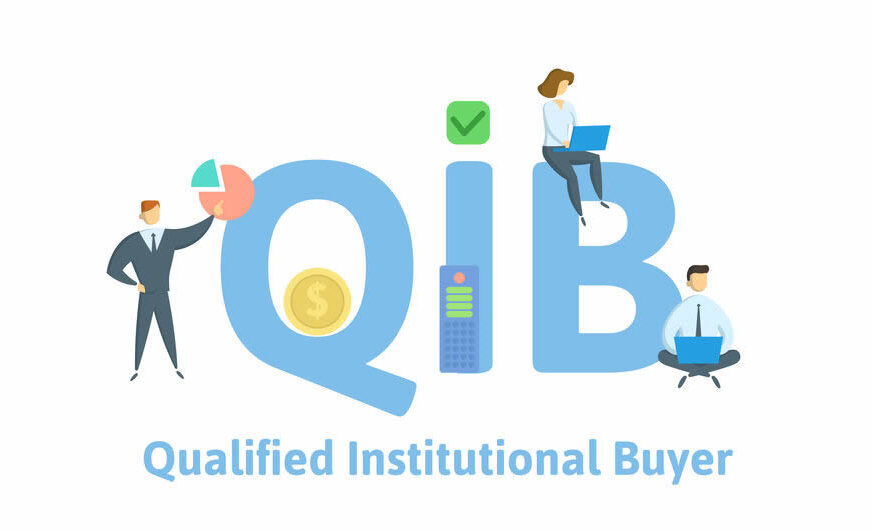An Initial Public Offering (IPO) is an important event for a company as it marks the conversion from a private limited company to that of the public. IPOs await investors keenly so they may make a good profit, and IPO allotment status is one of the vital things in this process.
IPO Allotment Status Demystified
Now, before going into the details of QIB, it is important to get an idea of the IPO allotment status. When an IPO is being issued, investors would apply for shares under different categories of investors such as Retail Individual Investors (RII), High Net-Worth Individuals (HNI), and Qualified Institutional Buyers (QIB), and it is the IPO allotment status that determines how many shares an investor gets from his application backed by certain criteria like demand, oversubscription, and regulatory guidelines.
What is QIB in IPO?
A Qualified Institutional Buyer (QIB) is an institutional investor equipped with great financial resources and expertise in investments. Regulatory authorities like the Securities and Exchange Board of India (SEBI), therefore, defined QIBs as financial institutions, mutual funds, FII, insurance companies, pension funds, and venture capital firms that fulfill certain eligibility criteria.
Role of Qualifying Institutional Buyers in IPOs
Quantifying the vital role of QIBs in IPO issues, one may elaborate upon:
1. Price Discovery
QIBs help to arrive at an issue price in an IPO, as they are present in the book-building process. The bids received from the QIBs affect the final price band, and they are ultimately accepted as credible by the rest of the investors. This becomes important as it affects demand and subsequently market performance.
2. Stability
The presence of QIBs provides stability in an IPO. They invest a good amount of money, which signifies credibility in the company and encourages other investors to apply for shares. Such credible participation adds to the credibility of the issue in the market.
3. Large Share Allocations
To ensure institutional participation and such large-size investments, the regulatory authority SEBI requires that at least 50% share allocations should go to QIBs. Such preferential allocation keeps institutional strength leading to the company’s better implementation in the weak-market post-listing.
4. Long-Term Approach
On the contrary, QIBs may, in general, be long-term investors, while retail investors may be looking for short-term gains. This holding of shares post-listing by QIBs reduces the volatility and supports price stability in the secondary market.
5. Retain Interest of Retail Investors
QIB interest renders an IPO attractive for retail investors and high-net-worth individuals. When a popular institutional investor weaves its way into an IPO, retail investors flush in behind it, lending credence to the assertions of much expected reward and less risk.
The Difference Between QIBs and Retail Investors
Investment Size: QIBs invest in large amounts; retail investors can apply for shares of a value not exceeding ₹2 lakhs.
Allotment Percentage: QIBs are entitled to at least 50% of the IPO shares, whereas only 35% are allocated to retail investors.
Lock-in Period: QIBs have a 30-day lock-in period with respect to shares allotted to them in anchor-investor categories, unlike retail investors, thus imparting stability.
Bidding Process: QIBs participate in book-building and help determine the issue price, while retail investors apply at the cut-off price.
How to Know IPO Allotment Status?
Through the Registrar’s Website: Most IPOs are assigned a registrar, i.e. Link Intime or KFin Technologies; the investor visits the registrar’s site to check the allotment status by providing either a PAN, application number, or DP ID.
Stock Exchanges Websites: IPO allotment status is also updated on BSE and NSE. The investors should visit the website, put in the IPO name and application details, and find their allotment status.
Broker’s Platform: Some brokers also provide IPO allotment tracking on their trading platforms or mobile applications.
Why is QIB Important for an IPO?
This is an indication of a successful IPO when a strong qib in ipo participation is observed. When institutional investors have confidence in a company, it means that, in other words, the market as a whole tends to be a little comfortable with such companies. Many of the past IPOs benefited hugely from a significant post-listing price increase because of strong demand among QIBs.
Conclusion
Every investor who wants to enter the stock market must be able to understand the role of QIBs in the IPO. They play a significant role in price discovery, market stability, and investor confidence; thus, it becomes indispensable in the IPO ecosystem.







